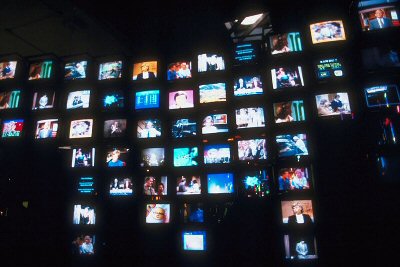Really? Too Many Films? Too Many Filmmakers?
Among all the problems in the world, “too many films…” is certainly not one of them.
Let’s think about this for a moment. Are there too many pieces of music — not just contemporary or pop music in all its many genres, but music? Are there too many books on too many different subjects and in too many different languages? Maybe there are too many entrepreneurstrying to develop too many business ideas. Or possibly too many restaurants? Or maybe just too many Mexican restaurants?
Pretty unlikely, wouldn’t you say? So why are there “too many docs” as one article in the trades this week has it? Or as pundits regularly scowl and complain at the various Hollywood conferences — “too many movies”?
I think there are a few big issues. It’s likely there are more or others, but here are four …
1. The general population is poorly educated. I was discussing with a colleague why documentaries seemed to do so much better in England than in the US, citing the difficulty of marketing a title that had won many awards. He said: “well, we are better educated, don’t you think?” If you are trying to make a thoughtful essay on a difficult subject, you do need an audience that can handle that. Those audiences are increasingly hard to come by. They are out there, if you can find them.
2. Tastes are highly fragmented. There are many people in the United States and they have a lot of ideas about what’s fun or what’s good or what’s inspiring. There are people who care about food, and others about trees, and others about water, and still others about trains. And even the old stand-by, a theme that you could count on, “boy meets girl”, now has lots of variations. It’s a mature worldview that encompasses lots of variety. But maybe that’s gone the route of education.
3. Time is really scarce. Things move really fast and deciding to make time out of a schedule that is filled with so many choices and demands is really hard. People will make time for something that they find really compelling, but what people find compelling is really all over the place. Just think about all the things that are happening in New York City on any particular night. And every one of them wants an audience for their activity or presentation or offering. Getting a couple of hours out of someone’s schedule is a complex issue.
4. Money is a problem. It’s not just that “we” don’t have as much money as “we” used to. Our institutions don’t have money either. It used to be, if you had an indie film, you might get picked up by HBO or PBS here and the BBC there, and just a few months after you opened in the festivals, you had your costs covered. But the big institutions are not spending like that now. And the businesses that could provide a home (such a Netflix) don’t care anymore. And that’s just one illustration.
There’s not really anything an author can do about any one of these, or even all of them taken together. And it’s not very helpful to describe a problem in a way that does not permit a solution. So let’s take just one approach: The audience is highly fragmented.
That’s a problem that can be tackled and wrestled to the ground. But it’s not the author (or composer or chef or filmmaker) that has that problem — that’s a problem of marketing and distribution. We should take some time to write about how we are approaching this issue on behalf of our filmmakers. It begins to answer the complaint “there are too many films!” — (to be continued) –





